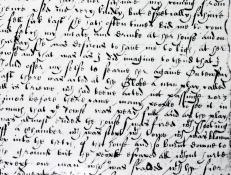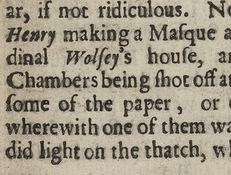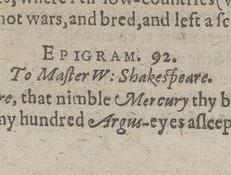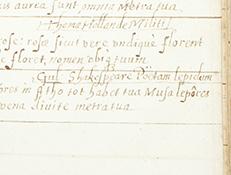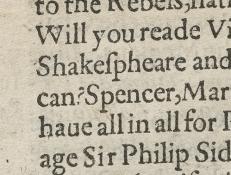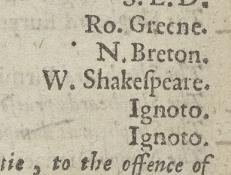To view a sortable list, please visit the Resource
All Documents
July 4, 1613
SHAKESPEARE DOCUMENTED IS STILL GROWING! Descriptive content and transcriptions will continue to be added, updated and expanded. Check back for regular updates!
July 2, 1613 (reproduced here in print, 1661)
SHAKESPEARE DOCUMENTED IS STILL GROWING! Descriptive content and transcriptions will continue to be added, updated and expanded. Check back for regular updates!
1614
SHAKESPEARE DOCUMENTED IS STILL GROWING! Descriptive content and transcriptions will continue to be added, updated and expanded. Check back for regular updates!
March 1, 1614
The Rape of Lucrece was first entered into Liber B of the Stationer's Company on May 9, 1594 by John Harrison (known as "the Elder" to distinguish him from his brother of the same name, also a printer and publisher).
September 5, 1614
In late August/early September 1614, it became generally known that plans were afoot to enclose some of the open fields at Welcombe, to the northeast of Stratford.
Summer of 1614
Stratford’s Corporation chamberlains presented their annual accounts, covering payments from the previous twelve months, in January each year. Although individual payments are usually undated, it can be assumed they were entered broadly in chronological order.
October 28, 1614
Within two months of it becoming common knowledge that plans were afoot to enclose some of the open fields at Welcombe to the north-east of Stratford, Shakespeare took steps to ensure that his income as a leaseholder of half the tithes of Old Stratford, Bishopton and Welco
ca. 1614
Epigram 57 in Thomas Porter's collection of epigrams honors the delightful poet (poetam lepidum) William Shakespeare:
Quot lepŏres in Atho tot habet tua Musa lepôresIngenii vena diuite metra tua
1614
William Camden, one of England’s most respected antiquaries, published the second edition of Remaines of a greater work in 1614.
1614
Like the first edition of 1600, the second edition of Englands Helicon (1614), includes a sonnet from act 4, scene 3 of Love’s Labor’s Lost (1598). The poem in Englands Helicon is ascribed to “W.

